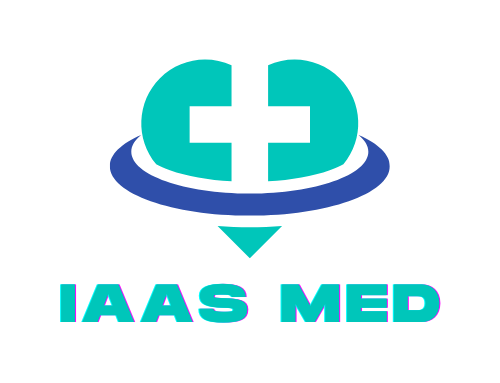Cognitive Behavioral Therapy, often referred to as CBT, is one of the most commonly recommended approaches for addressing mental health challenges. It is known for its structured and goal-oriented methods that help individuals change negative thought patterns and behaviors.
For some, it has been life-changing, offering clarity and tools to manage overwhelming feelings. For others, the journey with CBT can feel less impactful, leaving questions about whether the method aligns with their unique needs and circumstances.
Its widespread success in helping people with anxiety, depression, and other conditions raises an important question: Is CBT effective for everyone? The answer is not as straightforward as many might hope. Exploring why this therapy works for some but not for others reveals deeper insights into its strengths and limitations.
Understand How CBT Works

Cognitive Behavioral Therapy is a psychological approach that focuses on the connection between thoughts, feelings, and behaviors.
The primary goal is to identify and challenge negative thought patterns that contribute to emotional distress or unhealthy actions.
By restructuring these patterns, CBT helps individuals develop healthier ways of thinking and behaving in various situations.
Core Principles of CBT
- Identify Negative Thoughts: Recognize harmful or inaccurate thoughts that influence emotions and actions.
- Challenge Unhelpful Beliefs: Examine the validity of negative thoughts and replace them with constructive alternatives.
- Practice New Skills: Apply learned strategies in real-life scenarios to improve emotional regulation and coping abilities.
Common Conditions Treated with CBT

- Anxiety disorders, including generalized anxiety and social anxiety
- Depression and mood disorders
- Post-traumatic stress disorder (PTSD)
- Phobias and obsessive-compulsive disorder (OCD)
- Chronic pain and insomnia
How CBT Sessions Work
Sessions are typically structured and collaborative. Therapists guide individuals through identifying specific issues, setting goals, and working on actionable steps to address challenges.
Homework assignments, such as journaling or practicing new skills, often play a central role in reinforcing progress outside of therapy.
Explore Who Benefits Most from CBT

CBT is particularly effective for individuals who prefer a practical, solution-focused approach to mental health challenges. Its emphasis on actionable strategies makes it well-suited for addressing specific problems rather than delving deeply into past experiences.
Characteristics of Those Who Benefit
- Goal-Oriented Individuals: People who are motivated to set and achieve specific goals often find CBT helpful.
- Preference for Structure: Those who appreciate a clear framework and step-by-step guidance respond well to CBT.
- Willingness to Engage: Active participation in exercises, homework, and self-reflection is essential for success.
Conditions with Proven Results
- Anxiety Disorders: CBT is highly effective for generalized anxiety, panic attacks, and phobias.
- Depression: Individuals dealing with negative thought cycles often find relief through CBT’s restructuring techniques.
- Behavioral Issues: Problems like procrastination, avoidance, or unhealthy habits improve with the focused interventions of CBT.
Factors That Enhance Success
- A Skilled Therapist: A trained and experienced therapist tailors the sessions to individual needs, increasing the likelihood of positive outcomes.
- Commitment to Homework: Completing assignments between sessions reinforces progress and builds long-term habits.
- Openness to Change: A willingness to question existing beliefs and try new approaches plays a key role in benefiting from CBT.
Learn Why CBT May Not Work for Everyone

CBT’s structured and goal-oriented approach does not suit every individual. Personal preferences, the nature of certain mental health conditions, and external factors can limit its effectiveness. Understanding these challenges helps in deciding if CBT is the right choice.
Reasons CBT May Not Be Effective
- Focus on the Present: CBT emphasizes current thoughts and behaviors, which may not address deep-rooted trauma or unresolved past issues.
- Need for Emotional Exploration: Some individuals require therapy that prioritizes emotional expression and understanding rather than practical solutions.
- Difficulty with Homework: People who struggle with motivation or focus might find the structured tasks overwhelming or hard to complete.
Conditions That May Respond Differently
- Complex Trauma: Those with severe or prolonged trauma may benefit more from therapies like EMDR or psychodynamic therapy.
- Severe Depression: In cases of debilitating depression, individuals might lack the energy to engage fully with CBT strategies.
- Personality Disorders: Conditions like borderline personality disorder often require approaches like dialectical behavior therapy (DBT), which incorporates mindfulness and emotional regulation.
External Factors Impacting Success
- Therapist Compatibility: A mismatch between therapist and client can hinder progress, making it harder to connect and trust the process.
- Access to Resources: Limited access to trained therapists or financial barriers may reduce the effectiveness of CBT for some people.
Consider Alternatives to CBT
When CBT does not align with personal needs or fails to deliver the desired outcomes, exploring other therapeutic approaches can provide a better fit. There are numerous evidence-based options designed to address a variety of mental health challenges.
Other Evidence-Based Therapies
- Dialectical Behavior Therapy (DBT): Originally developed for borderline personality disorder, DBT incorporates mindfulness and emotional regulation techniques, making it suitable for managing intense emotions.
- Eye Movement Desensitization and Reprocessing (EMDR): Often used for trauma, EMDR focuses on reprocessing distressing memories to reduce their emotional impact.
- Psychodynamic Therapy: This approach delves into unconscious patterns and unresolved past experiences, offering insight into how they affect current behaviors.
- Acceptance and Commitment Therapy (ACT): Emphasizes accepting emotions and committing to actions that align with personal values, especially for anxiety and depression.
Alternative Methods for Emotional Support
- Support Groups: Shared experiences in a group setting provide emotional connection and mutual encouragement.
- Creative Therapies: Art or music therapy allows individuals to express emotions in non-verbal ways.
- Somatic Therapies: These methods focus on the mind-body connection, addressing how trauma and stress are held in the body.
Key Questions When Choosing an Alternative
- What feels most comfortable when addressing emotions or challenges?
- Does the therapy focus on specific issues or a holistic approach?
- How important is the therapist-client connection for progress?
Find the Right Approach for Your Needs
Choosing the most effective therapeutic method involves understanding personal preferences, the challenges faced, and what type of support feels most meaningful. While CBT is highly regarded, exploring various options ensures a better match for long-term success.
Steps to Identify the Best Therapy
- Define Your Goals: Clarify what you hope to achieve, whether it is reducing anxiety, processing trauma, or improving relationships.
- Assess Your Preferences: Determine if you prefer structured approaches like CBT or methods that focus on emotional exploration, like psychodynamic therapy.
- Consult Professionals: Speak with therapists who specialize in different modalities to gain insight into which approach may work best for your situation. Even the type of mental health professional needed, whether that be someone with years of psychology experience, a doctor who can prescribe medication, or a graduate of an online clinical mental health counseling degree (click here to learn more), can differ greatly depending on your situation
Factors to Consider
- Therapist Compatibility: A strong relationship with your therapist plays a vital role in the effectiveness of any method.
- Practical Needs: Consider availability, cost, and accessibility when evaluating options.
- Flexibility in Approach: Look for therapists who adapt methods based on your progress and comfort.
What Works Best for Different Needs
- For anxiety or phobias: CBT or exposure therapy may be effective.
- For trauma: EMDR or somatic therapies are often recommended.
- For relationship issues: Couples counseling or family systems therapy may be more suitable.
FAQs
Is CBT Useful for Children and Adolescents?
Yes, CBT has been adapted for children and adolescents, addressing issues like anxiety, depression, and behavioral problems. Therapists often use creative methods, such as games or visual aids, to engage younger individuals and teach them practical coping skills.
Can CBT Be Combined with Medication?
Many individuals benefit from combining CBT with medication, especially for conditions like severe anxiety or depression. Medication can help stabilize symptoms, making it easier for individuals to engage in therapy and apply learned strategies effectively.
How Long Does CBT Take to Show Results?
The duration varies depending on the individual and the condition being treated. Some people notice improvements after just a few sessions, while others may require several months. Typically, CBT involves 12 to 20 sessions for significant progress.
Are There Any Risks Associated with CBT?
CBT is generally considered safe, but it may involve uncomfortable emotions as individuals confront negative thoughts or memories. With a skilled therapist, these challenges are managed in a supportive environment to ensure the process remains constructive.
Is Online CBT Effective?
Online CBT has grown in popularity and can be just as effective as in-person therapy for many people. Virtual sessions provide flexibility and accessibility, especially for those in remote areas. However, some may find face-to-face interaction more beneficial for building a therapeutic connection.
Conclusion
Cognitive Behavioral Therapy has earned its reputation as a powerful tool for addressing a range of mental health challenges. Its structured approach and practical focus have transformed the lives of many by equipping them with tools to manage negative thoughts and behaviors. However, as with any therapy, its effectiveness depends on individual needs, circumstances, and preferences.
For those who thrive in a goal-oriented, hands-on framework, CBT offers a proven path to mental well-being. For others, exploring alternative therapies or combining approaches might be necessary to find the right fit. Mental health care is deeply personal, and what works for one person may not work for another.















